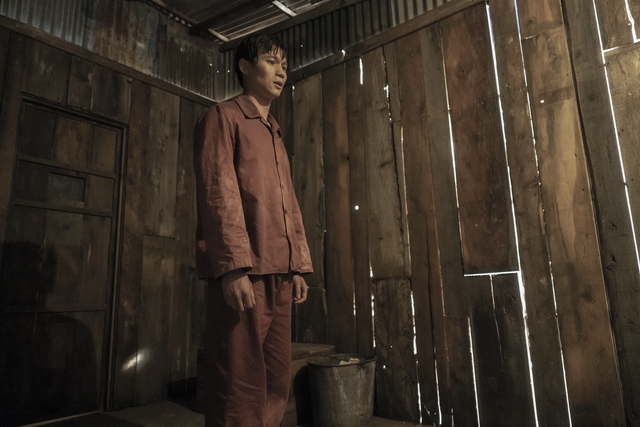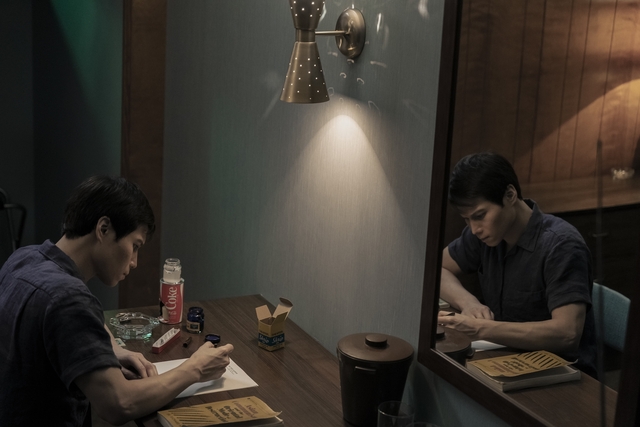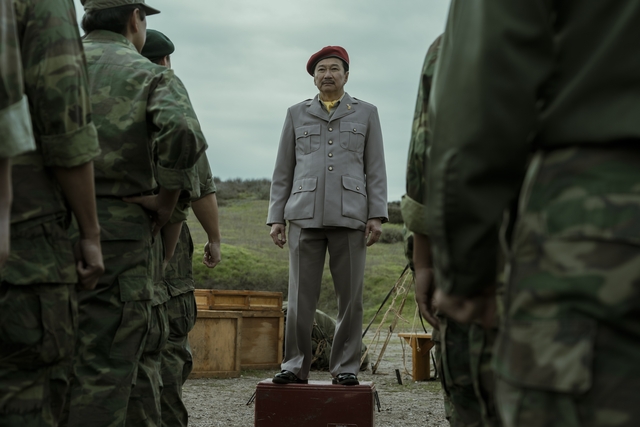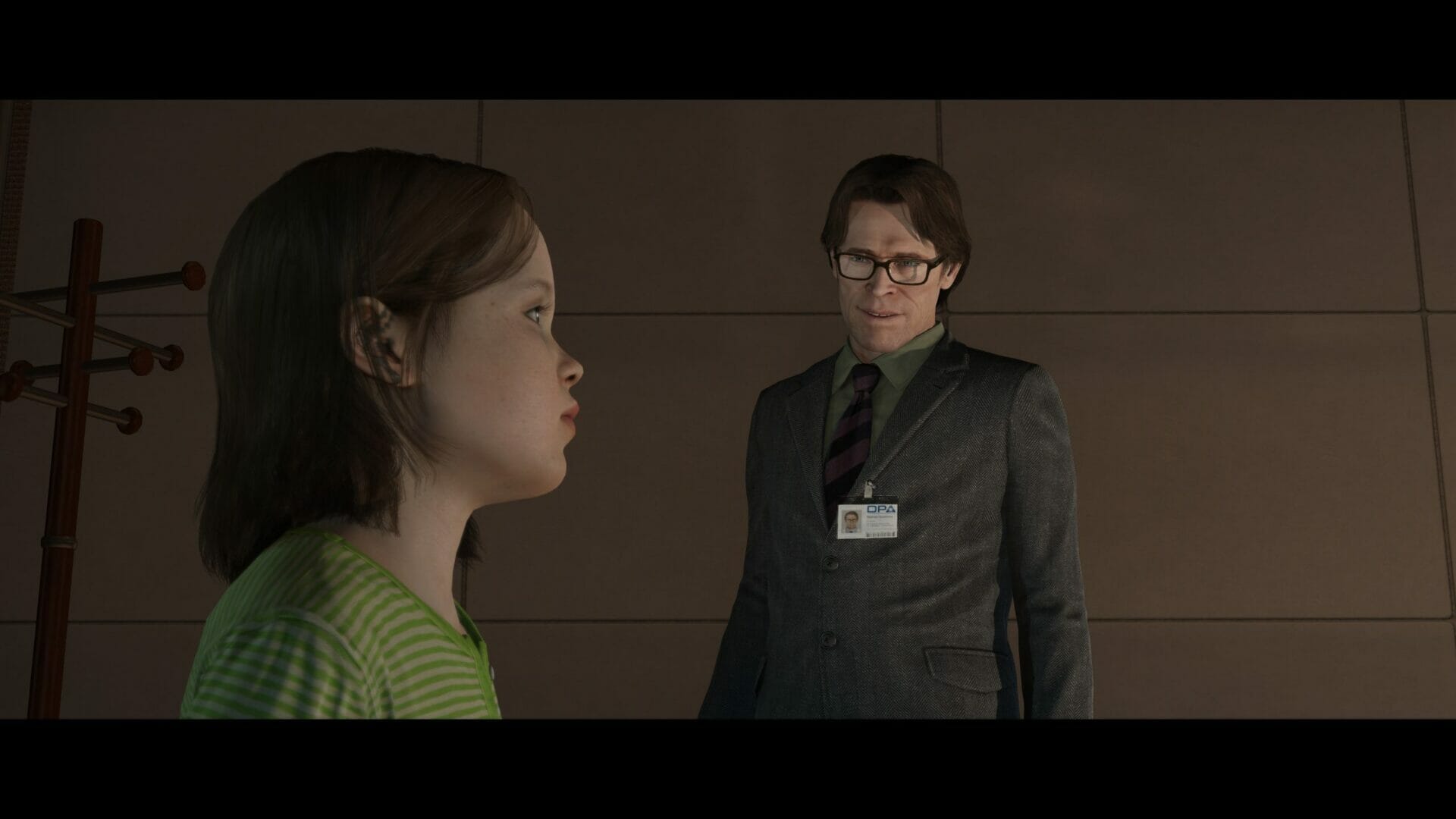
The Sympathizer TV Show by Park Chan-wook and Don McKellar Review | War lives in Identity and Memory
Year
Country
Seasons
Runtime
Genre
Music by
By
All wars are fought twice, the first time on the battlefield, the second time in memory.
The Sympathizer
Adapting a Pulitzer-winning novel is already an ambitious challenge. But bringing Viet Thanh Nguyen‘s The Sympathizer to the screen makes the undertaking even more complex.
Known for visually and intellectually powerful works like Oldboy and The Handmaiden, Park Chan-wook, who co-created the show with Don McKellar, presents The Sympathizer as an intricate and cerebral puzzle. A show that drags the viewer between time jumps, ranging from the days immediately preceding the fall of Saigon to the following months.
But more than just about war, The Sympathizer miniseries, which debuted on HBO in 2024, is a thriller, a political satire and an discovery of one’s own identity wrapped in a 1970s aesthetic. It is a complex mosaic that reflects the chaos and internal fragmentation of its protagonist, proposing a nonconformist perspective on one of the most controversial chapters in modern history: the Vietnam War.
War and Exile
The plot of The Sympathizer develops around a character known simply as ‘the Captain’ (Hoa Xuande). He’s a military man with a Vietnamese mother and a French father, who works as a spy for the Viet Cong of North Vietnam. He’s also infiltrated into a position as the right-hand man of the General (Toan Le), one of the most influential figures of South Vietnam, allied with the United States.
The conflict of loyalty and identity is the heart and metaphor of the entire story. The Captain is constantly divided between two worlds, incapable of completely belonging to just one.
The show begins with the Captain working as police chief for the South Vietnamese General, his mentor and father figure. However, he secretly reports to the communist North, providing crucial information. This double life, after Saigon’s fall in 1975, takes him into exile in L.A. with the General and other refugees. While in the USA, he continues his spy mission, while dealing with personal demons and disillusionment.
A lot of immigrant diasporas can relate to the feeling of growing up in a place that’s outside of your parents’ heritage and feeling like an outsider. I never spoke my language when I was growing up. […] I didn’t look like a lot of my friends, but then I wasn’t Asian or Vietnamese enough.
Hoa Xuande talking about his personal experiences to The Wrap
In parallel, the plot explores his relationships – and the dualism between betrayal and reality – with two childhood friends, Bon (Fred Nguyen Khan), a loyalist soldier from the South, and Man (Duy Nguyễn), his superior and contact in the communist North.
The narrative is full of time jumps: everything is told directly from the Captain, who is held prisoner in a communist re-education camp in Vietnam with the task of ‘confessing’. This confession is therefore the pretext to explore the dualistic psychology of the protagonist but also how the war has influenced and cast shadows on winners, losers and survivors as well.

The Unreliability of Truth
I am a spy, a sleeper, a spook, a man of two faces
The Captain
The Captain embodies the whole concept of duality. As a half-Vietnamese, half-French man, he’s perpetually caught between opposing identities, never fully belonging to either.
His identity’s not fixed but is instead shaped by internal and external contradictions of one’s surroundings. The Captain’s experiences how external pressures, like the demands of different political ideologies or the expectations of various cultures, can fracture a person’s sense of self. Instead of finding a clear resolution to his identity crisis, the Captain navigates a life with continuous adaptation and compromises, never fully at peace. This unresolved tension underscores The Sympathizer’s exploration of identity as something fluid and multifaceted, rather than easily defined.

What makes a people such, especially when they leave their native land? Through the experience of the Vietnamese refugees in America, the loss of cultural identity becomes a central concern as well. The show portrays the different ways Vietnamese people pass from total assimilation to maintaining a fierce connection to their homeland. They, such as the Captain, live the tension between embracing a new identity and clinging to the old.
The Captain’s disillusionment with both political systems highlights the futility of seeking a singular identity or ideology. By the end, he’s a man hollowed out by the constant push and pull of conflicting loyalties, left questioning who he truly is.

There’s no objective truth to answer the question of who one really is. The Captain’s confession may not be accurate too, given the rewritings to appear less guilty of treason. Like his own identity, the Captain is unreliable, and his truth is constantly in flux. This is mirrored in the visual storytelling, where scenes are rewound and replayed with subtle differences, underscoring the instability of truth.
Characters as Symbols
Oscar winner Robert Downey Jr. is one of the cast members of The Sympathizer. His role is both a bold and risky creative decision, marking him as the symbolic embodiment of American power and influence. Throughout the show, he plays four distinct characters, each representing different facets of American hegemony: a CIA agent, a Hollywood director, a congressman, and a professor of Oriental Studies. This multifaceted portrayal allows the show to explore how American institutions – government, culture, academia – have historically asserted dominance over marginalized groups, particularly in the context of the Vietnam War.
Downey intentionally exaggerates his performances, adding a comic layer to the dark themes of the show. His CIA agent Claude, with his eccentric and intense persona, typifies the paranoia and militarism that characterized U.S. involvement in Vietnam. Similarly, his portrayal of a movie director (a thinly veiled reference to Francis Ford Coppola and his Apocalypse Now) critiques Hollywood’s cultural imperialism and its often simplistic portrayal of complex global conflicts.

However, this approach is not without its challenges. While Downey’s portrayals inject humor and satirical sharpness into the show, serving as a critique of American power, they occasionally overpower the scenes, with the risk of overshadowing the deeper, more intimate stories at the heart of The Sympathizer and detracting from the more nuanced performances of the Vietnamese characters.
Park’s signature touch
In comparison with Viet Thanh Nguyen’s novel, the show differs above all in the representation of the protagonist. While in the book the Captain offers a lyrical and regretful exposition, which reflects his critical vision of both communism and American capitalism, the show focuses more on the external world and visual details. The public must therefore seek his motivations through his actions and silences. A necessary change in the transition to a different medium, but which at the same time contributes to the cryptic nature of certain parts of The Sympathizer.
Usually, when the war ends, the show or the movie ends. But for the Vietnamese refugees on The Sympathizer, that’s when the real story begins.
Fred Nguyen Khan for HBO
The contrast between East and West is instead explored through a fusion of cultural elements, such as American rock music and the pop aesthetics. Park uses visual culture as a tool to highlight the American influence in Vietnam and how this is reflected in the Captain, a communist but a great fan of various capitalist products.
Park’s approach is characterized by the use of vivid colors, unusual editing cuts with connections often based on the use of shapes. The wheel of a car can, in the next scene, transform into the roundness of an airplane window. With the addition of studied camera angles, the show flares up with a dense and stylistically rich atmosphere. The first three episodes he directed are particularly intense, mixing the tragic and the absurd, making the story both dark and ironic.
This tone fades in the rest of the episodes, although the other directors try to keep the style unitary; only to disappear completely at the end, when the story focuses on the Captain’s stay in the re-education camp. Nonetheless, the style of The Sympathizer remains a ‘gluing’ element of the show, both because it unites characters, symbols and styles, but because it helps to further attract the viewer’s attention.

The War continues in Memory
In America it is called the Vietnam War. In Vietnam it is called the American War.
The Sympathizer
In The Sympathizer there is a particular quote from Ho Chi Minh, the president of North Vietnam. “Nothing is more precious than freedom and independence.” The phrase is repeated throughout the show, as it summarizes the ideals pursued by the Captain himself. But right at the end it is distorted, reinterpreted and takes on a different meaning. This suggests how these concepts, however correct, can often become distorted in practice, especially when used by those in power to justify oppression.
This happens in relation to communist Vietnam, but the same reversal – with the consequence of doubting values – also applies to South Vietnam and the United States of America. The Sympathizer, therefore, does not favor either one or the other faction, because what emerges is that often history as it is told is not necessarily the one that actually happened. As with the Captain’s confession, any type of narrative – and therefore also history itself – is often shaped by those who have the power to tell it, influenced above all by their own memory, which could be fallacious and/or manipulable,
There is current criticism from part of society on the Americanization of history and foreign societies, towards which the United States brings innovation and progress. The line between salvation and hegemony, however, often becomes very blurred.
The Sympathizer, therefore, wants to remind the viewer of the importance of analyzing different perspectives, before making a hasty judgment, and of how, after all, the identity of not only an entire population, but an individual one, can be influenced by it. Discovering who one really is, at that point, becomes a painful and difficult journey to resolve.
Tag
Buy a ☕ for Hypercritic











